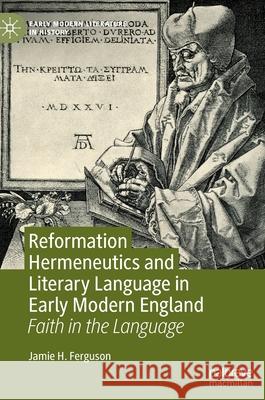Reformation Hermeneutics and Literary Language in Early Modern England: Faith in the Language » książka
topmenu
Reformation Hermeneutics and Literary Language in Early Modern England: Faith in the Language
ISBN-13: 9783030817947 / Angielski / Twarda / 2022 / 294 str.
Kategorie:
Kategorie BISAC:
Wydawca:
Palgrave MacMillan
Seria wydawnicza:
Język:
Angielski
ISBN-13:
9783030817947
Rok wydania:
2022
Wydanie:
2021
Numer serii:
000030930
Ilość stron:
294
Waga:
0.46 kg
Wymiary:
21.01 x 14.81 x 1.6
Oprawa:
Twarda
Wolumenów:
01
Dodatkowe informacje:
Wydanie ilustrowane











